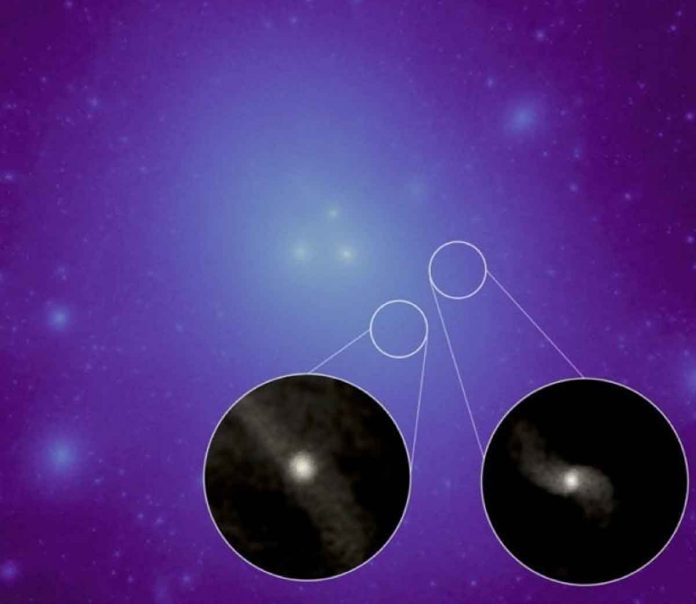Astrophysicists from the University of California reported that when tiny galaxies collide with bigger ones, the bigger galaxies can strip the smaller galaxies of their dark matter. These matters we can’t see directly. But these matters do exist. Because without its gravitational effects they cannot explain things like the motions of a galaxy’s stars.
Its mechanism helps to explain how galaxies might be able to exist without dark matter. This was once thought impossible.
Scientists observed two galaxies which seemed to exist without most of their dark matter in 2018.
Scientists reported that in Astrophysical Journal Letters in 2020. It threw the galaxies-need-dark-matter paradigm into turmoil. It upended what astrophysicists had come to see as a standard model for how galaxies work.
Scientists ran computer models that simulated the evolution of a chunk of the universe. It started soon after the Big Bang and run all the way to the present.
Scientists found seven galaxies devoid of dark matter. After several collisions with neighboring galaxies 1,000-times more massive. They were stripped of most of their material. They left behind nothing but stars and some residual dark matter.
Scientists described hoe they didn’t build their model just so they could create galaxies without dark matter. This would make the model stronger. The model wasn’t designed in any way to create the collisions that they eventually found.
Scientists confirmed that galaxies lacking dark matter can be explained in a universe where there’s lots of dark matter. Now astrophysicists know how a galaxy might lose its dark matter. Scientists hope these finding would inspire researchers who look at the night sky to look for real-world massive galaxies.

